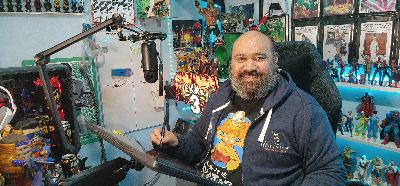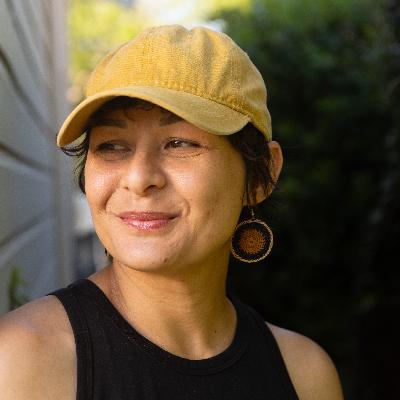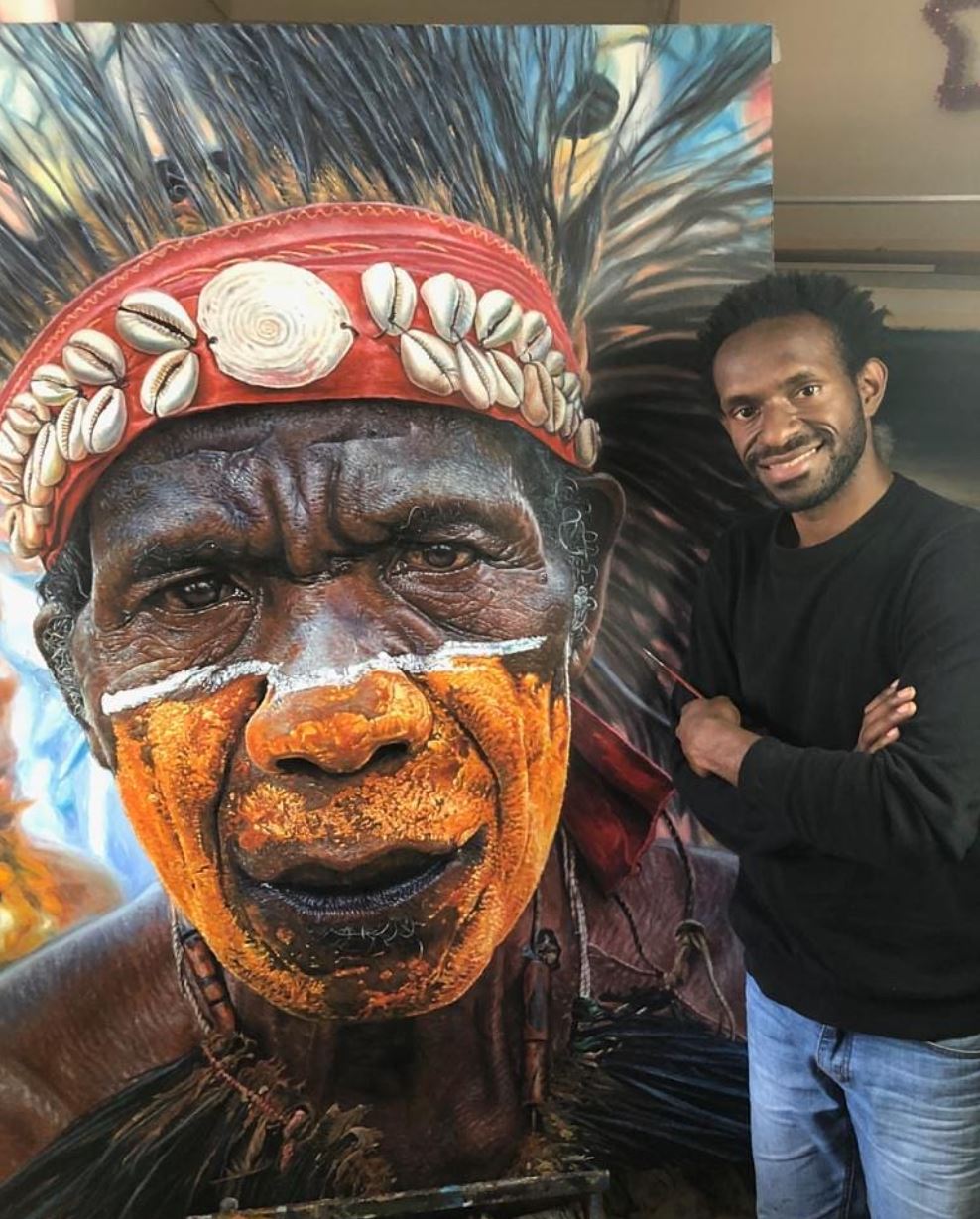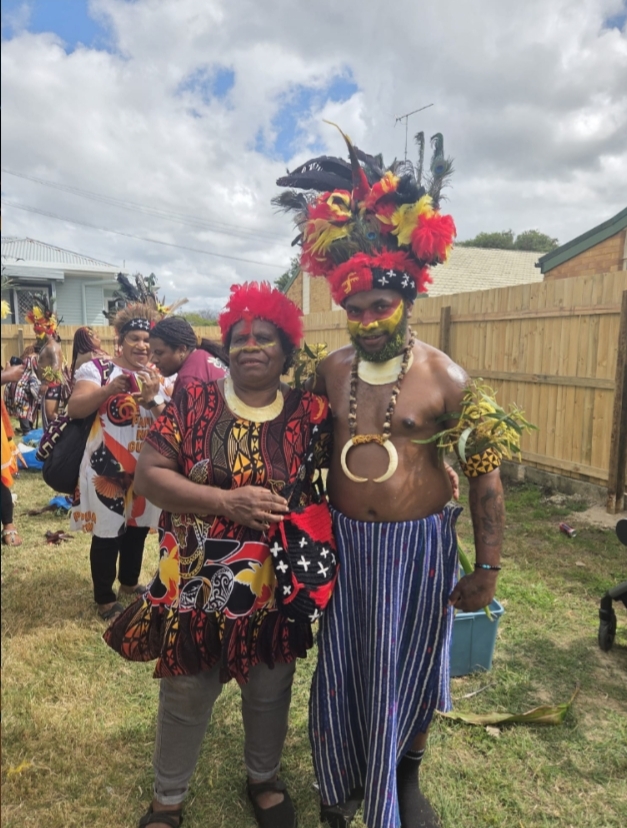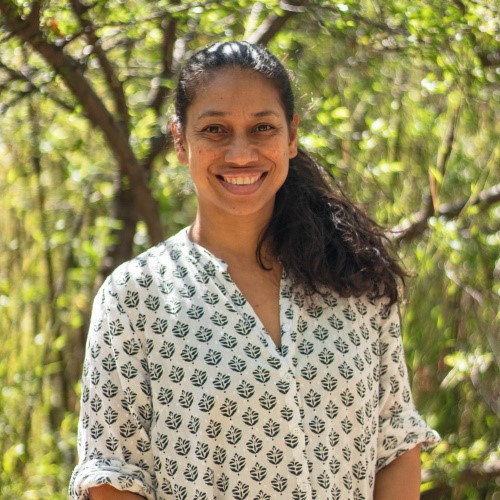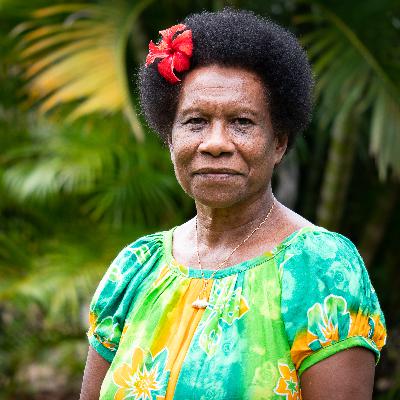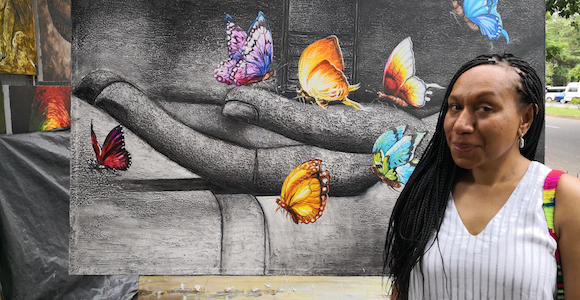Discover Stories From The Pacific
Stories From The Pacific

Stories From The Pacific
Author: Radio Australia
Subscribed: 5Played: 129Subscribe
Share
© Copyright 2025, Australian Broadcasting Corporation. All right reserved.
Description
For centuries, Pacific Islanders have been sharing stories across the region, Stories from the Pacific honours that tradition, allowing the audience to hear in-depth personal stories from right across the Pacific.
105 Episodes
Reverse
To understand Yvonne Ueda's journey is to picture the weaving of a chedecholl mat — each strand a story, each imperfection a source of strength. Her life has been shaped by preparation, patience, and partnership: from a winding educational path marked by setbacks, to discovering identity through motherhood, faith, and community. Today, she leads conservation projects in Palau with The Nature Conservancy, inspires young people through her church, and tends to her own farm: a dream she hopes will one day become her full-time calling.Listen to Yvonne's conversation with Stories From The Pacific, host Bobby Macumber on ABC Radio Australia.
Stories From The Pacific
Home can mean many things: the eucalyptus trees and beaches of Sydney, the chaos of New York City or the warmth of family barbecues with music and food. For Mi-Kaisha, home is both a physical place and a community that raised her. As a proud Aboriginal and Tongan artist, Mi-Kaisha's journey has taken her from family singalongs and NAIDOC celebrations to breaking barriers as the first Aboriginal student at New York University’s Clive Davis Institute of Recorded Music. Her music - blending pop, R&B, and cultural storytelling - carries the voices of her family and community wherever she goes.
Imagine failing high school on purpose — not because you couldn't succeed, but as an act of protest to defend comics as a true art form. This is exactly what Samoan artist and wrestler, Michel Mulipola did.Born and raised in South Auckland, Michel turned childhood obsessions with comics and wrestling into a career that has spanned comics, wrestling collaborations, and nearly 20-years in the wrestling ring.Michel's art and activism are steeped in Samoan heritage, his storytelling both playful and political. Whether behind the drawing table or under the bright lights of the ring, Michel reveals his unapologetic Pacific-creativity to ABC Radio Australia's Bobby Macumber, on Stories From The Pacific.
For Guam filmmaker, Brian Muna, storytelling began in a dark room — watching his mother develop photographs and later holding his first camera at juts five years old.But his most personal story came decades later, with his film Chamoru: A lost language — a work exploring identity, loss and survival.Just one day before the film's national premiere, Brian's mother passed away — forever binding the project to her memory.His story is one of contracts: of growing up under a heavy military presence while searching for his Chamoru roots, of struggling with language while being steeped in family values, and of using film as a tool to reclaim what was once fading away.Brian's journey is about turning personal grief into a cultural mission.
Imagine being a teenager stuck in a hospital bed, unable to walk for two years after major surgery, staring out at a rugby field where you once dreamed of playing. For Joji Malani, it was in this painful and isolating moment that music became a lifeline - and eventually a monument to who he is today. From his childhood in Fiji to global stages with Australian rock band Gang of Youths and now creating opportunities for Pacific voices through his label Broth Records, Joji's story is one of resilience, heritage, and building pathways for others.
When Rhea Moss-Christian returned to the Marshall Islands in her twenties, she carried with her questions about language, belonging, and identity. Though the islands were her birthplace, she struggled to feel truly at home in a community that was part of her heritage but felt distant. Raised in California, Rhea often found herself caught between cultures - an outsider both abroad and in her homeland. Her journey of reconnection and self-discovery became the foundation for a remarkable career in global diplomacy. Today, Rhea stands as the first Pacific Islander woman to lead the world’s largest tuna fisheries organisation, making decisions that impact billions of meals and millions of lives across the globe. This episode explores how Rhea found strength in the in-between spaces of identity, and how that journey shaped her into a powerful voice for the Pacific on the world stage.
From Fiji - with fierce pride and unapologetic style - comes Temesia Tuicaumia, a fashion designer, educator, and cultural influencer who's redefining what it means to wear your identity.Temesia is best known for his bold refusal to wear pants, choosing instead the traditional Fijian sulu, a powerful symbol of resistance against fast fashion and a celebration of heritage.But there's more to Temesia than meets the eye. Behind the striking style is a passionate educator, a community builder, and a man whose journey has been shaped by setbacks, resilience, and an unwavering commitment to his roots.This episode isn't just about fashion. It's about turning identity into a brand, clothing into culture, and personal history into a movement.
Meet a film producer, documentary director and visual storyteller based in Auckland, New Zealand, whose work is rooted in the heart of the Pacific.Born in Vuaki village, Yasawa, from Matuku Lau and raised in Suva, Fiji, Elizabeth Koroivulaono brings powerful authenticity to the screen, capturing the lived experiences and voices of Pacific communities with deep empathy and an Indigenous lens.Her storytelling is rich with heart, integrity and cultural insight.One stand-out example is The Forgotten Pacific, a compelling original documentary from Coconet TV that shines a light on untold stories from the region.But Elizabeth's journey goes beyond the camera. In this episode, she opens up about navigating identity, creativity, and the shift from growing up as part of the majority to living in a place where she became a minority. It's a conversation about belonging, resilience and the power of storytelling to bridge worlds.
Melanie Kawa lives and breathes rugby union. You may recognise her from her time playing on the field when she was captain of the Papua New Guinea Palais women's seven team or when she was representing the Melbourne Rebels.Melanie was also the first Papuan woman to ever play professional rugby in France for the Montpellier Hérault rugby club.Today she sits on the board of directors for Rugby Victoria in Australia.Melanie's list of achievements and success as a result of her passion and drive for the sport continues off the field. Melanie is working with the next generation of rugby womens players, continuing to build upon the matriarchal legacy she forged back in her club-rugby days.
Born in Papua New Guinea and raised in Australia, award-winning writer and filmmaker Alana Hicks has built a career weaving resilience, humour, and identity into unforgettable stories. From her prize-winning essay Medium Beige to her acclaimed short film Chicken, Alana reflects on growing up between two cultures, surviving moments of violence and racism, and turning those experiences into art. In this episode of Stories from the Pacific, Alana speaks with Bobby McCumber about family, legacy, comedy as resistance, and what it means to call “home” a foreign country.
When Lesley Wengembo was just 10 years old, he picked up a pencil and drew a portrait of his grandfather.His grandfather looked at it and made a prediction that would shape the young Lesley's life forever.Years later, Lesley received an invitation that could have launched his career onto the world stage. He packed his bags, left Papua New Guinea and flew to Sydney.But that's when everything changed.
Monica Paulus is a human rights activist and co-founder of both the "Highlands Women Human Rights Defenders Network" and "Stop Sorcery Violence". Monica is a protector of women accused of and affected by sorcery and witchcraft accusations. Hailing from the Highlands of Papua New Guinea from the village of Aregol, Monica takes us on a journey through her life – sharing the struggles, hopes and her fight against sorcery accusations and the extreme violence that follows such accusations.
Koteka Wenda's childhood is full of bittersweet memories and lessons. Her early memories are of her family fleeing West Papua as political-refugees to live in exile in the safety of the United Kingdom. It was in exile where Koteka and her family discovered what it means to grow a community and continue the spreading of their message to "Free West Papua" using their abilities as mucians, educators and living witnesses to being a West Papuan in Indonesia. Koteka is now developing her own understanding of the unique position she holds as a young-exiled-woman to bring fresh perspectives and goals to the "Free West Papua" movement. Do you have a story idea for this program? You can email us on: storiesfromthepacific@abc.net.auThis week's episode of Stories From The Pacific is a repeat of the show broadcast on 24th July 2024
Katerina Teaiwa’s family was forced from their home of Banaba in Kiribati when almost the whole population was displaced and relocated to Rabi Island in Fiji in 1945, to make way for more mining. From 1900, the UK, Australia and New Zealand mined phosphate for 80 years to use for fertiliser. Today, Katerina’s scholarly and artistic work highlights the history and current situation of Banabans, which she describes as fragmented and resilient culture. And despite the trauma caused to an entire population, there are talks to mine Banaba again.This week's episode of Stories From The Pacific is a repeat of the show broadcast on 13th September 2023
Lydia's story of her marriage with her first husband details 12 years of significant abuse, but she's using it to educate others who may be experiencing something similar.
Hina Cross was seven years old when the last of the 193 nuclear bombs was tested in French Polynesia in 1996. But she never learned about it in school. After being diagnosed leukaemia at the age of 24, Hina began to realise the full extent of the fallout. Now an Anti-Nuclear Activist and newly appointed Member of Parliament in Tahiti, Hina aims to unveil the country’s true history and give Polynesians the chance to tell their own stories. This week's episode of Stories From The Pacific is a repeat of the show broadcast on 12th July 2023
Wendy Mocke, a Papua New Guinean actor, playwright and screenwriter, has spent six months hosting Stories From the Pacific. She wraps up her time in this special send-off, reflecting on the journey by revisiting powerful moments from each guest. Wendy shares their words of cultural wisdom and offers an intimate glimpse into lives and communities across the Pacific she asks each of them this question: “What’s one thing about your culture or community that isn’t widely known or celebrated, but you wish the world understood?”
Stories From TheWhat does it mean to grow up between two worlds? For Elvina Poki Ogil, one world is a village in Papua New Guinea, where the mountains know your name. The other is a city in Australia, where people try to define you without ever learning where you come from. It’s this in-between space that Elvina knows well. She’s a corporate lawyer, a podcast host, and someone who doesn’t shy away from hard truths, whether it’s colonial legacy, structural inequality, or the quiet ways culture erodes when no one is looking. But ask her how she identifies, and she’ll tell you: “I’m a member of my father’s tribe, first and foremost.” Pacific
He's a voice heard across the Pacific airwaves each weekday morning.Jacob Simil McQuire co-hosts Radio Australia's Nesia Daily program, and he's known for his quick wit and quips.But as well as being a journalist and a broadcaster, he's a community builder.A proud Darumbal and South Sea Islander man, Jacob's the glue in so many spaces he walks through.His message? "We're still here".Wendy Mocke explores what makes Jacob tick.


